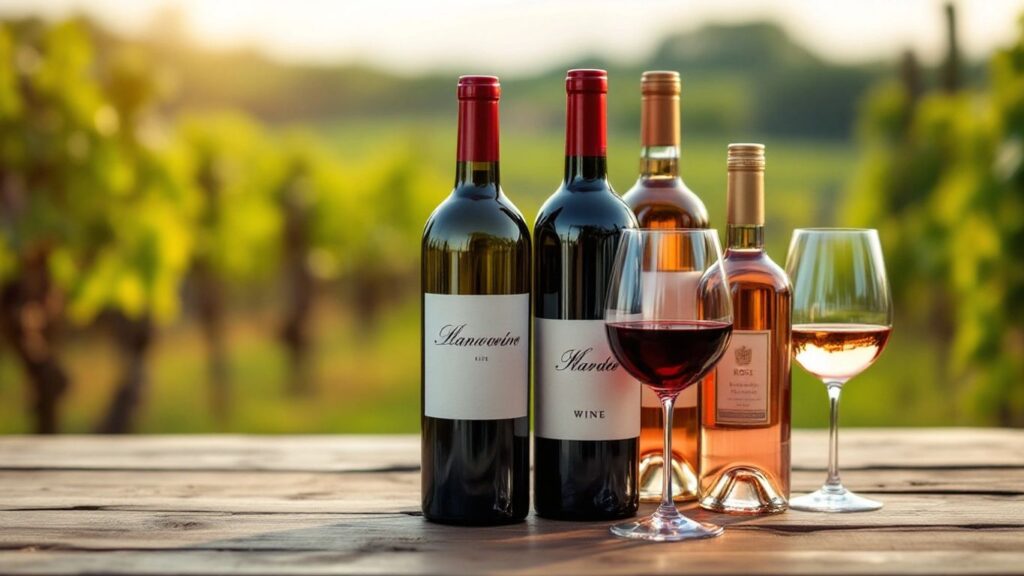Craft wineries offer a unique experience for wine lovers. These small producers create wines with care and attention to detail. You can taste the passion in every sip.
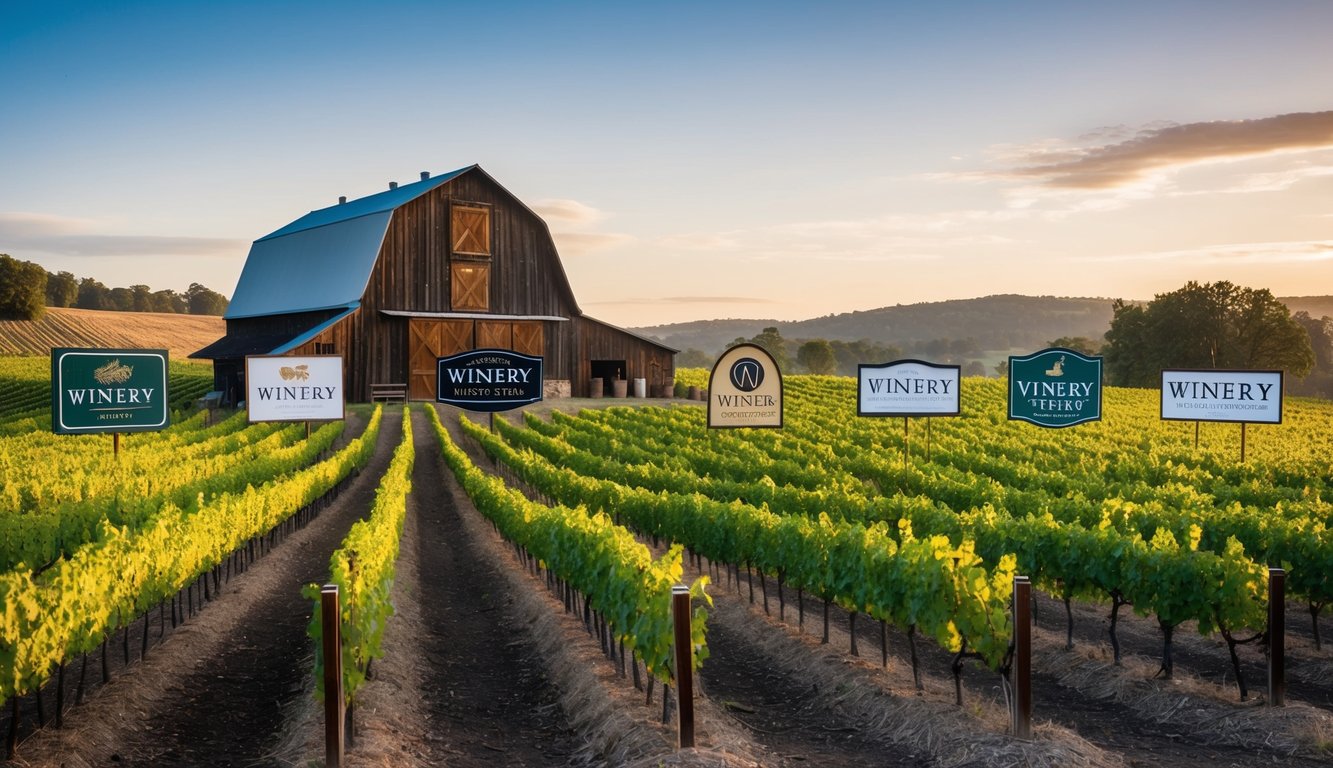
Visiting craft wineries lets you discover hidden gems in the wine world. You’ll find small, under-the-radar wineries that make exceptional wines. These places often have a cozy feel and give you a chance to talk with the winemakers.
1) Willamette Valley’s Domaine Serene
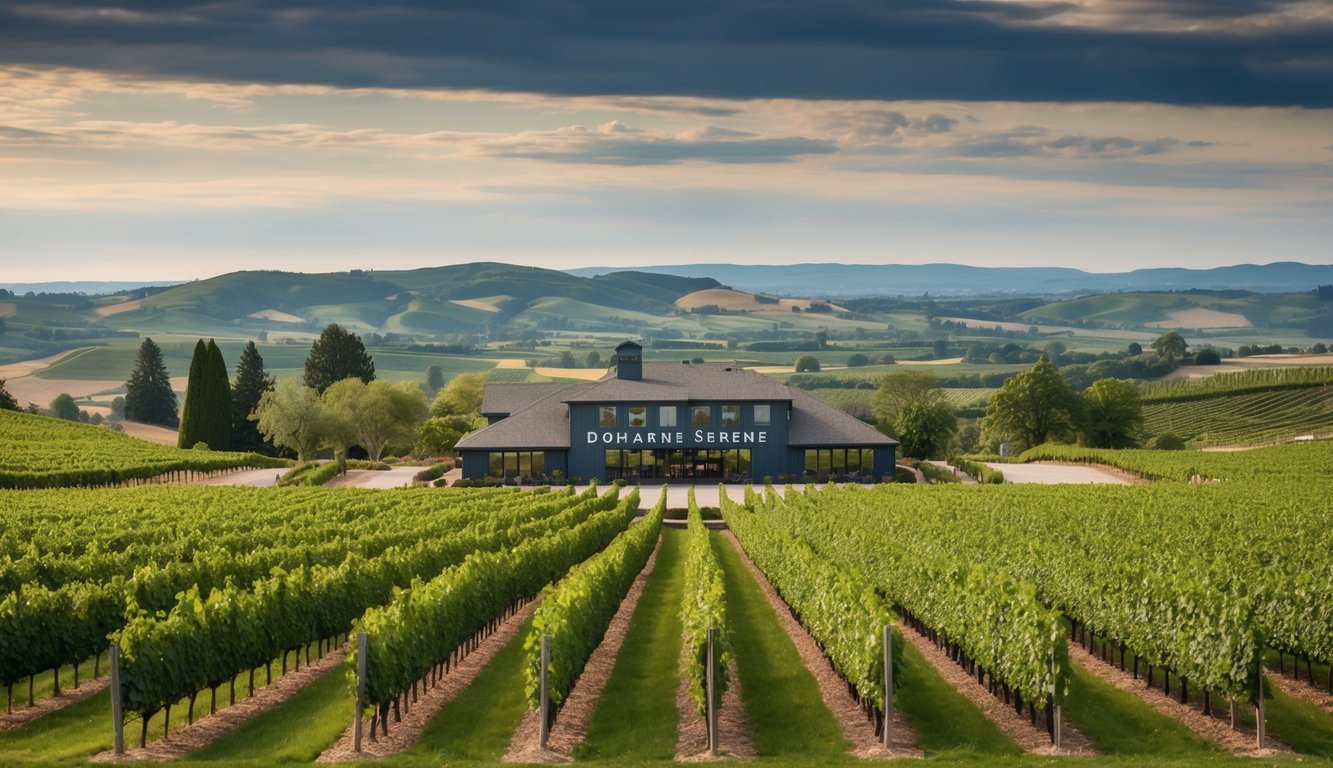
Domaine Serene stands out as a premier winery in Oregon’s Willamette Valley. Founded in 1989, it has become renowned for its world-class Pinot Noir and Chardonnay.
You’ll find Domaine Serene’s commitment to quality evident in every bottle. Their Evenstad Reserve Pinot Noir is a standout, showcasing the best of Willamette Valley terroir.
When you visit, expect a luxurious tasting experience. The winery’s stunning architecture and panoramic views add to the allure of their exceptional wines.
Domaine Serene’s success extends beyond Oregon. They’ve expanded their reach to Burgundy, France, further solidifying their reputation in the wine world.
You’ll appreciate the winery’s dedication to sustainable practices. Their focus on environmental stewardship aligns with the values of many wine enthusiasts.
Plan your visit to Domaine Serene for a taste of some of the finest Pinot Noir in the Willamette Valley. It’s an experience you won’t soon forget.
2) Paso Robles’ Screaming Eagle
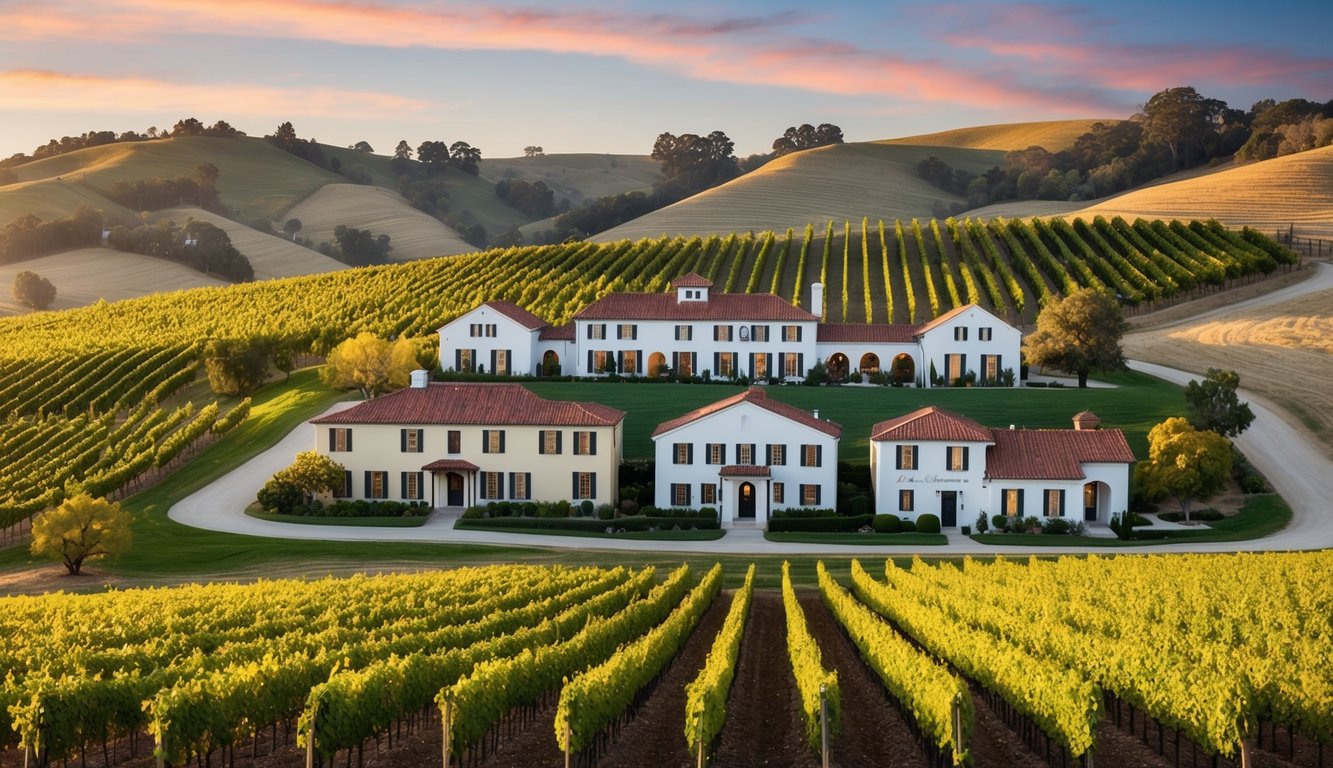
Paso Robles has become a hub for exceptional wineries, and one standout is often referred to as the region’s “Screaming Eagle.” This winery has gained a reputation for producing high-quality, limited-production wines that rival some of California’s most prestigious labels.
You’ll find this winery nestled in the rolling hills of Paso Robles, where the unique terroir contributes to the distinct character of their wines. The winemakers here focus on crafting Bordeaux-style blends that showcase the best of what the region has to offer.
When you visit, you’ll be treated to an intimate tasting experience. The winery’s small production allows for meticulous attention to detail in every bottle. You might sample their flagship Cabernet Sauvignon, known for its rich flavors and complex structure.
The winery’s commitment to excellence extends beyond the bottle. You’ll notice their dedication to sustainable farming practices as you tour the vineyards. This approach not only benefits the environment but also enhances the quality of the grapes.
Reservations are often required due to the winery’s popularity and limited capacity. Plan ahead to secure your spot and experience some of Paso Robles’ most sought-after wines.
3) Napa Valley’s Staglin Family Vineyard

Tucked away in a quiet corner of Rutherford, you’ll find the Staglin Family Vineyard. This hidden gem offers a unique wine tasting experience that stands out from the busy Highway 29 crowd.
Founded by Shari and Garen Staglin in 1985, this winery focuses on premium limited production wines. Their commitment to quality shines through in every bottle they produce.
You’ll be impressed by their signature Cabernet Sauvignon. The Staglin Family takes pride in crafting wines that showcase the best of Napa Valley terroir. Their 2019 Salus Cabernet Sauvignon has received high praise from wine enthusiasts.
When you visit, you’ll appreciate the family’s dedication to both winemaking and philanthropy. The Staglins are known for their efforts in supporting brain health research.
Your tasting experience at Staglin Family Vineyard will be intimate and personalized. You’ll have the chance to explore their estate and learn about their sustainable farming practices.
Don’t miss the opportunity to try their Chardonnay as well. It’s described as a vibrant wine with a perfect balance of richness and leanness.
4) Finger Lakes’ Dr. Konstantin Frank Winery
Dr. Konstantin Frank Winery has been a cornerstone of the Finger Lakes wine region since 1957. You’ll find this historic winery in Hammondsport, New York, where it continues to produce award-winning wines.
The winery’s founder, Dr. Konstantin Frank, played a crucial role in revolutionizing wine production in the eastern United States. He introduced vinifera grapes to the region, which helped put Finger Lakes wines on the map.
Today, you can visit the winery to experience their 1886 Wine Experience, a unique tasting that pairs gourmet cuisine with their finest wines. This exclusive event showcases the best of what Dr. Frank’s has to offer.
One standout wine is their 2020 Blanc de Blanc, a sparkling wine made from 100% Chardonnay grapes. This wine ages for at least 36 months in the bottle before release, resulting in a refined and elegant bubbly.
You’ll appreciate the winery’s commitment to quality and innovation. Their diverse selection includes both classic and experimental varieties, ensuring there’s something for every palate.
5) Oregon’s De Ponte Cellars
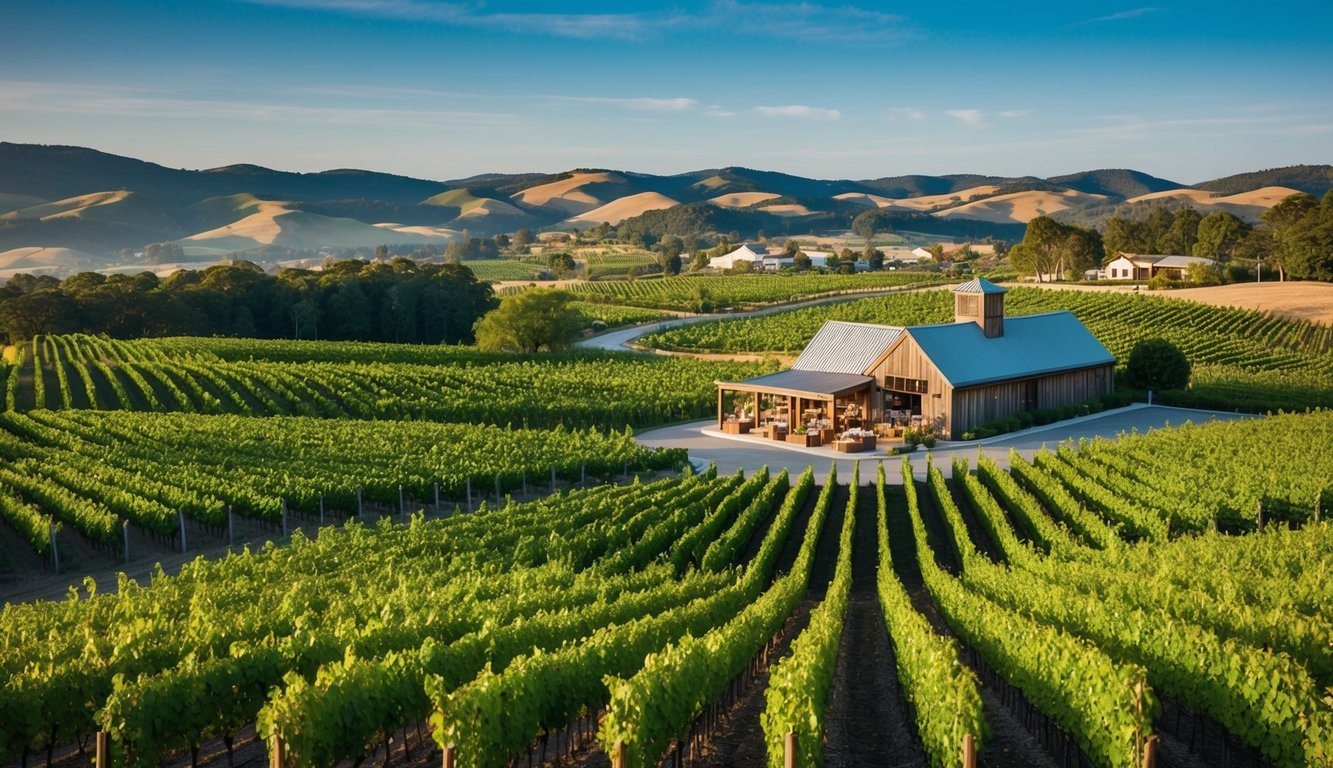
De Ponte Cellars sits in the heart of Oregon’s Dundee Hills. This scenic property boasts one of the oldest vineyards in the Willamette Valley.
The Baldwin family bought the land in 1999. They named the winery after Shirley Baldwin’s maiden name, De Ponte.
You’ll find bold flavors in De Ponte’s wines. Their vineyard may be small at just 15 acres, but it packs a punch.
When you visit, you can enjoy tastings daily. They offer sessions at 11am, 12:30pm, 2pm, and 3:30pm.
The winery gives you a taste of Oregon’s laid-back wine scene. You might sip wine in a barn or on a deck with vineyard views.
De Ponte Cellars focuses on making high-quality wines in small batches. This lets them pay close attention to every step of the process.
You can call or email to book a tasting or place an order. It’s a great spot to add to your Oregon wine tour.
6) Sonoma’s Littorai Wines
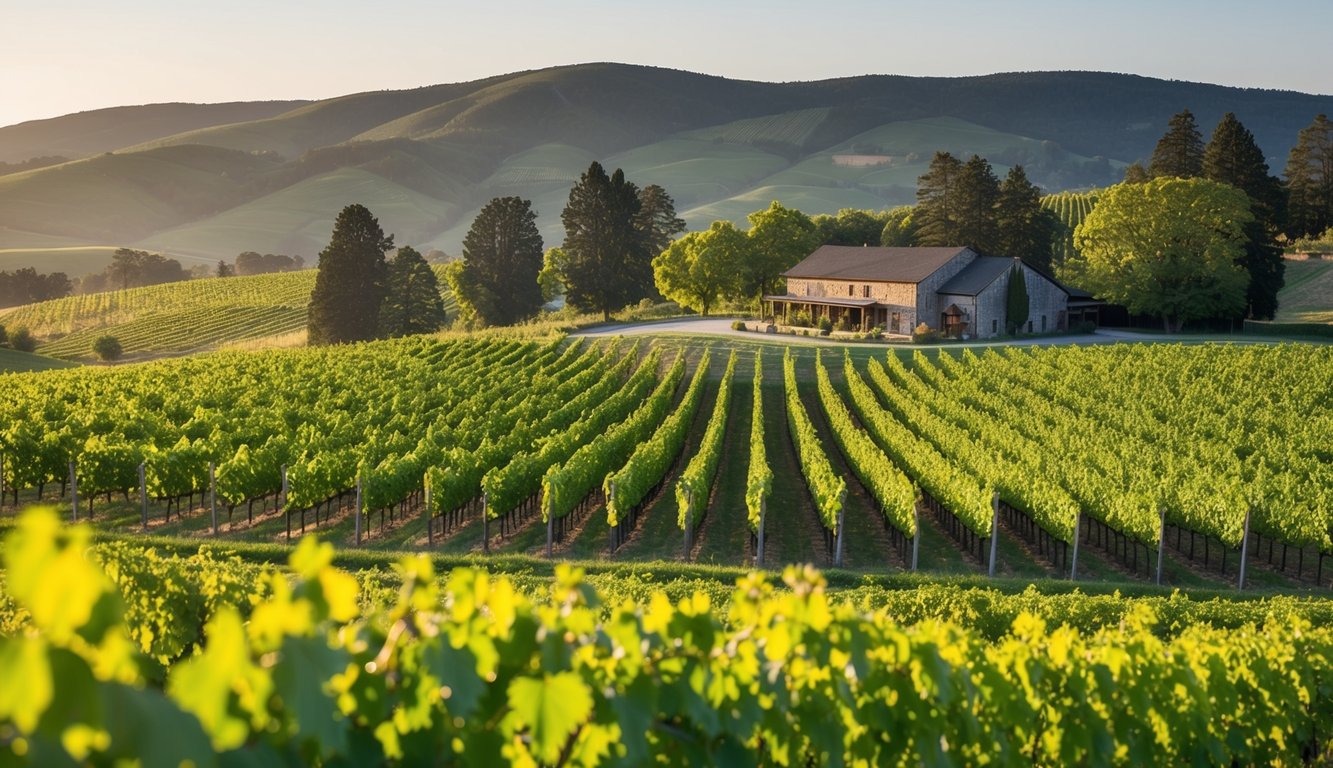
Nestled in the rolling hills of western Sonoma, Littorai Wines offers a unique winemaking experience. This small, family-owned winery focuses on producing exceptional Chardonnay and Pinot Noir.
You’ll find Littorai’s 30-acre estate near Sebastopol, where the cool, foggy climate creates ideal conditions for growing grapes. The winery’s dedication to biodynamic practices sets it apart from many others in the region.
Littorai’s founder, Ted Lemon, is known as the godfather of modern California Chardonnay. His passion for creating wines that reflect their specific terroir shines through in every bottle.
When you visit Littorai, you’ll have the chance to taste wines from various vineyards across Sonoma and Mendocino counties. Each wine showcases the unique characteristics of its origin.
The winery’s commitment to sustainable practices extends beyond the vineyard. You’ll see this reflected in their eco-friendly winery building and overall approach to wine production.
Littorai’s wines are highly sought after for their complexity and elegance. Your visit to this craft winery will give you a deeper appreciation for the art of winemaking and the importance of terroir.
Understanding Craft Wineries
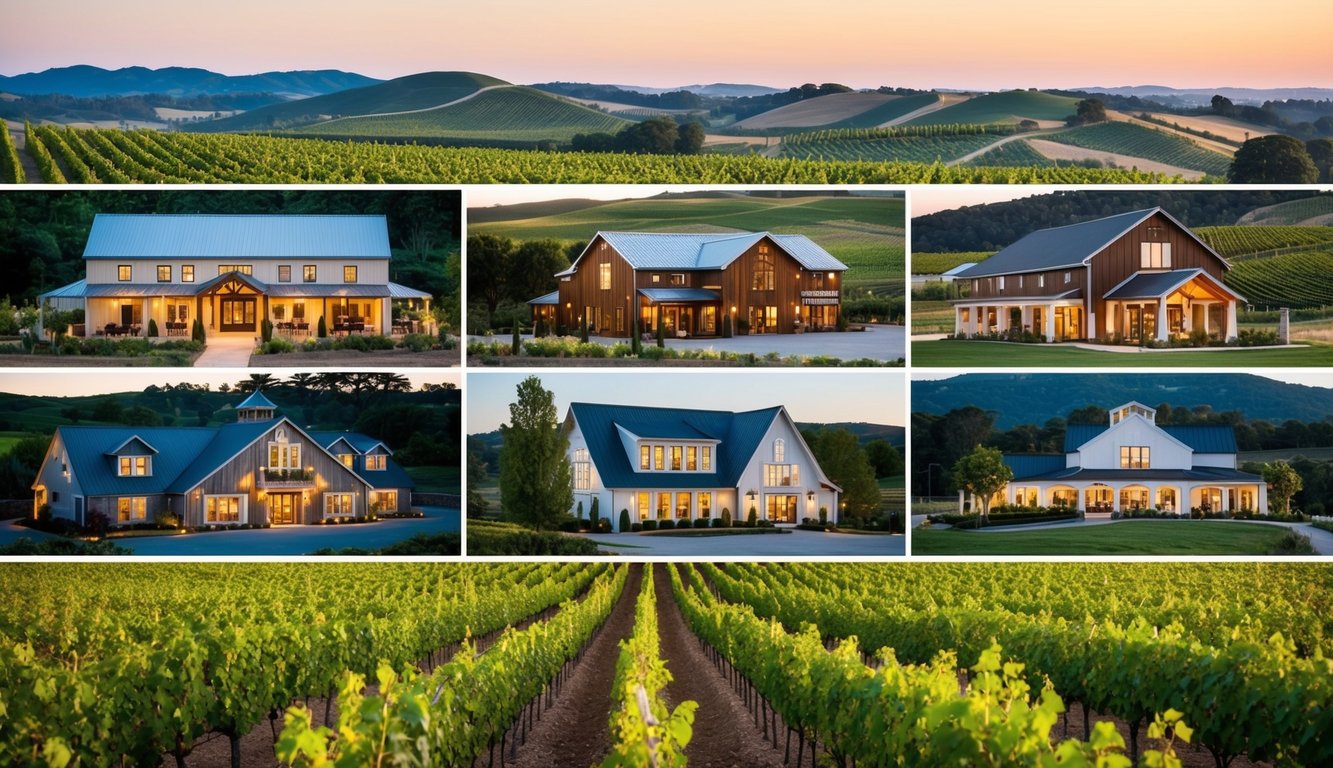
Craft wineries focus on small-scale, high-quality wine production. They prioritize unique flavors and sustainable practices. These wineries offer a personal touch and often showcase local terroir.
Defining Craft Wineries
Craft wineries are small, independent producers that make wine in limited quantities. They typically produce less than 5,000 cases per year. These wineries focus on quality over quantity. They often use traditional winemaking methods and pay close attention to detail.
Craft wineries usually source grapes from their own vineyards or local growers. This allows them to have more control over the quality of their wines. Many craft winemakers are hands-on throughout the entire process.
Craft wines celebrate creativity and sustainability in the wine industry. They often reflect the unique character of their region. You’ll find that craft wines have distinct flavors and personalities.
The Rise of Craft Wine Production
Over the past decade, craft wine production has grown in popularity. Wine lovers are seeking out unique, high-quality wines with a story behind them. This trend mirrors the rise of craft beer and spirits.
Many craft wineries are family-owned and operated. They bring a personal touch to their wines. Lewis Station Winery in Wisconsin is a great example. They make small-batch wines with minimal additives.
Craft wineries often experiment with different grape varieties and winemaking techniques. This leads to innovative and exciting wines.
You can find craft wineries in both traditional and emerging wine regions.
The Craft Wine Association helps promote these small producers. They connect wine lovers with unique, artisanal wines. By choosing craft wines, you support local economies and sustainable practices.
Unique Attributes of Craft Wineries
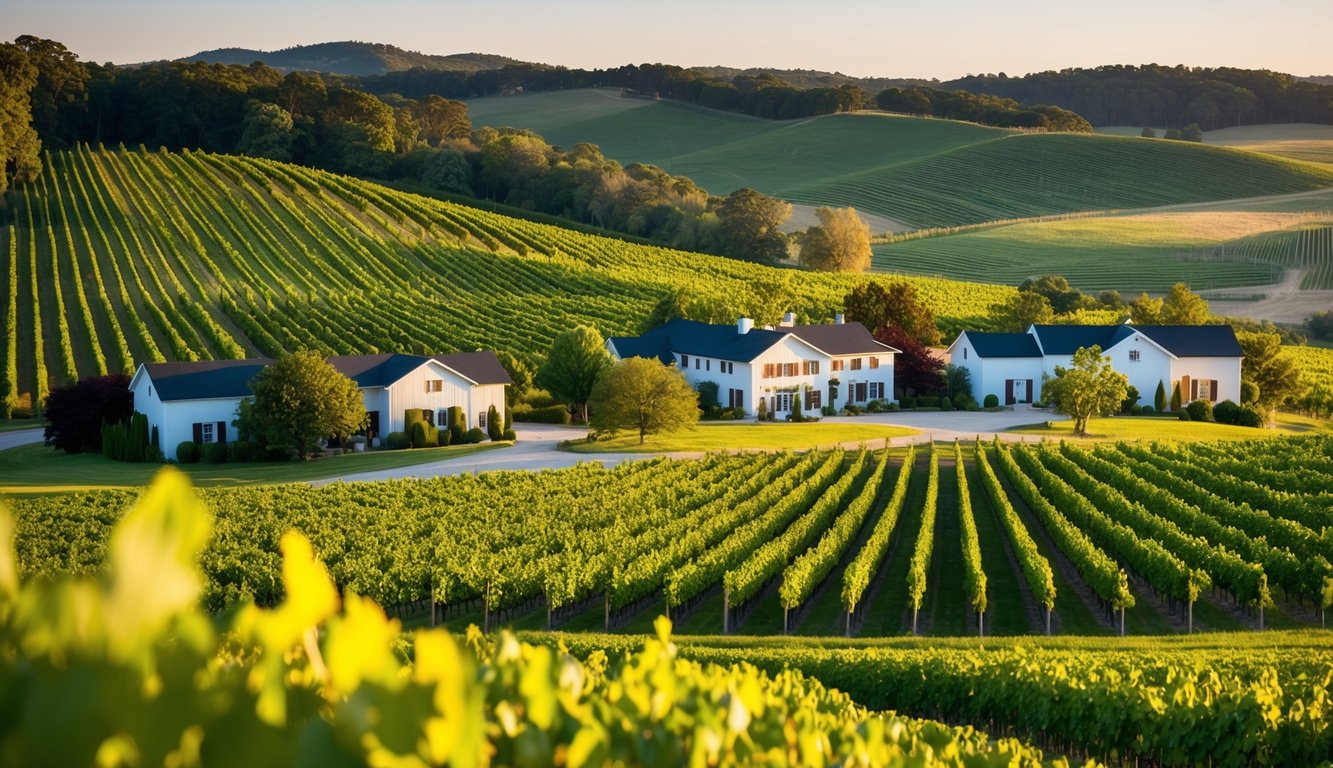
Craft wineries stand out for their commitment to quality and innovation. They focus on small-batch production and sustainable practices while pushing the boundaries of traditional winemaking.
Sustainability Practices
Craft wineries often lead the way in eco-friendly wine production. Many use organic farming methods to grow their grapes, avoiding harmful pesticides and fertilizers. This approach protects the environment and enhances the wine’s natural flavors.
Some wineries implement water conservation techniques, such as drip irrigation and rainwater collection. You’ll find that these practices not only save resources but also improve grape quality.
Energy efficiency is another focus. Craft wineries may use solar panels or geothermal systems to power their operations. This reduces their carbon footprint and can lower production costs.
Innovative Winemaking Techniques
Craft winemakers often experiment with unique methods to create distinctive wines. You might encounter wines aged in unusual materials like concrete eggs or clay amphorae, which can impart special flavors and textures.
Some wineries explore minimal intervention techniques. They allow the grapes to ferment naturally with wild yeasts, which can result in more complex and terroir-driven wines.
Blending is another area where craft wineries shine. They might combine unexpected grape varieties or use non-traditional ratios to create new flavor profiles. This creativity sets craft wines apart from mass-produced options.

